
Ben Watt. All pictures © Edward Bishop.
The former Everything But The Girl man and sometime house producer on why he’s going back to his acoustic roots
![]() hould you happen to be in search of a true ‘Renaissance man’ among contemporary musicians, you could do worse than to start by looking in Ben Watt’s direction. Not just a songwriter and artist with over 30 years in the game, he’s also (or has been, at various times) a radio presenter, author, DJ, record label boss and nightclub owner.
hould you happen to be in search of a true ‘Renaissance man’ among contemporary musicians, you could do worse than to start by looking in Ben Watt’s direction. Not just a songwriter and artist with over 30 years in the game, he’s also (or has been, at various times) a radio presenter, author, DJ, record label boss and nightclub owner.
Not just a wearer of many hats, he’s also covered a huge amount of musical ground in his career. Starting out as a folk-inspired singer-songwriter with his 1983 debut album North Marine Drive, he then teamed up with fellow Hull University student Tracey Thorn, then of the Marine Girls, to form the duo Everything But The Girl. Initially darlings of the earnest student bedsit crowd, EBTG moved over the course of a 15-year, 11-album career from gentle, acoustic jazz-tinged indie, through sophisticated, lounge-leaning pop and on to become a fully-fledged dance act, scoring their biggest international hit when house legend Todd Terry’s remix of Missing took them into the Top 5 right across Europe and, for the first time, in the US.
By this time, Watt had already won a near-fatal battle with the autoimmune disease Churg-Strauss Syndrome, a struggle which he documented in his first book, Patient (1997). Everything But The Girl then went into hiatus, as Tracey took some time out to concentrate on raising the couple’s children, and Ben focused on a career in dance music that saw him running London’s Sunday club session Lazy Dog, founding the highly respected Buzzin’ Fly label and, for a time, being co-owner of the nightclubs Neighbourhood and Cherry Jam.
More recently, Watt has been hosting a show on BBC 6 Music and written a second book, Romany And Tom, about his parents (his mother was a RADA-trained actress, his father a jazz musician). But somehow he’s also found time to record Hendra, a second solo album. Coming a mere 31 years after his first, Hendra is produced by Suede’s Bernard Butler and dance producer Ewan Pearson, features Dave Gilmour from Pink Floyd on one track and sees Watt returning to his folk-ish, pastoral, acoustic roots. Which, of course, is what we got him on the phone to talk about…
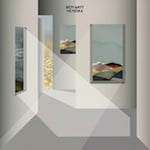 There’s a folky feel to this album that harks back to some of your earliest work. Would you say that, with Hendra, you’ve come full circle?
There’s a folky feel to this album that harks back to some of your earliest work. Would you say that, with Hendra, you’ve come full circle?
“There’s a connection there, certainly, a connection I needed to make. As the years went by, I felt like there was some unfinished business. I’d had a career as a rising 19-year-old songwriter, but then I started working with Tracey instead, and that developed its own momentum.
“Then in the late 90s, I kind of got burned out writing songs. At that time I was more into instrumental music, clubland, music as ritual. But then that period ended a couple of years ago and I needed a change. I had a feeling that I needed to get back to words again. So I wrote a book, Romany And Tom, about my parents’ marriage, and then I started working on Hendra.”
Over the years you’ve done a lot of songwriting both on your own, and in collaboration with Tracey. How do the two processes differ?
“Well first of all, me and Tracey usually write very much in isolation, even when we collaborate. It’s not like Gerry Goffin and Carole King in the Brill Building, trading ideas around the piano from 9 to 5. Because we both wrote individually before, we’ve always retained that sense of individualism, to the point where we’re actually quite secretive about our writing!
“Usually if we’re collaborating, then Tracey will give me a completed lyric and I’ll put it to music – she never gives me just a couple of lines and says, ‘Let’s work on this together’. Or I’ll give her a complete piece of music and she’ll come up with the words… it’s pretty much always that way around, I can’t think of a single Everything But The Girl song that’s got music by Tracey and lyrics by me. We tend to either write songs individually, or I do the music and she does the words.
“That said, there are times where maybe the last 10 or 20 per cent of the song was collaborative. Missing is a good example, actually. Lyrically, that was Tracey all the way up to the chorus, then I wrote the bit that goes ‘And I miss you, like…’ Like what? I got a bit stuck there and then about a week later Tracey came up with ‘Like the deserts miss the rain’.”
Has that process evolved or changed in any way, over the years you’ve worked together?
“When we started out, say for about the first half of Everything But The Girl’s career, Tracey tended to dominate the lyric-writing side of things, just because she was more confident with the form than I was. I started out a less instinctive lyricist than Tracey, but from the early 90s onwards – around the time of Amplified Heart and then on into Walking Wounded and Temperamental – I somehow worked out how to control it on a more regular basis. Maybe it was because of my illness, or because I wrote my book Patient, but somehow in the mid-90s I seemed to find a more confident voice.”
So at what point did you decide a solo album was in order?
“Well, I shuttered Buzzin’ Fly last year with a view to doing a solo album, but at that stage I didn’t really know how I was going to go about it. I’d been working on the book Romany And Tom about my parents, and then in autumn 2012, just as the book was nearing completion, my half-sister Jenny died. Which was a heavy blow, as you can imagine. And over that Xmas, after I finished the book, I knew I needed to get some new stuff down. So I went downstairs, picked up a guitar for the first time in ages and played some chords… and it bored me.
“I started experimenting with open tunings, and that really inspired me”
“So then I started experimenting with open tunings, and that really inspired me. When you’re playing in standard tuning, you’re playing the same old chord shapes over and over again. With different tunings you have to make different shapes, and you get a lot of overhanging, suspended notes… you end up with quite an impressionistic sound. That’s basically the history of folk rock right there: it hangs a lot of the time on open tunings, that suspended drone. It’s great for telling stories over.
“I tried DADGAD first of all but then I still thought I sounded too much like other people, so I changed tuning again. One of the songs on Hendra is in DADGAD, and some are in… actually, I think some tunings might have to stay a trade secret!”
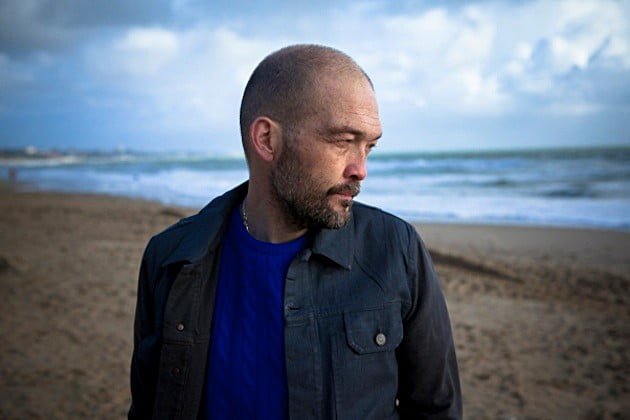
Was it daunting doing a solo album again, after years of being in a duo or being a ‘faceless’ DJ/producer? You are, after all, putting your heart a little bit more on the line…
“Not really, to be honest, no. Self-expression is what I do for a living. I’m very lucky in that respect, and it’s something I’ve never shied away from. My early records were very raw and heart-on-sleeve, so much so that some of the songs I can’t listen to now, they just seem very teenage and naïve. And then of course you can’t get much more pared down to the bone than Patient, where I wrote about my illness.
“At the end of the day, if you’re being honest and open, it makes a connection with people. We’re all raw, we all have broken dreams. So if you speak about these things, people connect with it.”
Did you try any different songwriting techniques while working on Hendra?
“Not on Hendra specifically, but generally I’m always looking for new ways to write. Over the years I’ve written on piano and guitar, and I’ve written in the modern way, stringing samples together in a sequencer, like musique concrete. It’s always good to try new things, because that helps to stimulate new ideas.
“Just look at Beethoven. When he was composing, this whole new instrument was invented – the grand piano. You can imagine someone saying, ‘Ludwig, check this out!’ and and it’s easy to see how that might have led to the 5th Symphony with those opening chords.”
So there’s no Ben Watt magical songwriting formula, then? No special place you go or routine you follow to put you in a songwriting frame of mind?
“Not at all. If I knew how to do it, I’d bottle it and sell it! I think where inspiration comes from is pretty much unknowable.
“It’s good sometimes to have a little distance from what you’ve written”
“I do often pretend I’m not writing, though. I might grab a piece of paper just before I leave the house, for instance, and scribble some words down without being precious about it. And of course I’ve got my iPhone and sing a lot of ideas into that. Then generally I’ve leave it for a few days, play the ideas back and the ones that catch my ear and still sound good, those are the ideas that I’ll develop further. It’s good sometimes to have a little distance from what you’ve written.
“I can also go for huge periods of time without writing anything at all. I haven’t written anything since we finished recording Hendra: I’m not someone who has a compulsive need to write every day. I think your mind does kind of store stuff away, though… it’s kind of like an endless hard drive, ideas and phrases get stored away, and then I trust things will come out at the right time.
“That said, there have been times over the years when I’ve struggled, when I just couldn’t seem to think of any original ideas whatsoever. But the moments of inspiration do come eventually.”
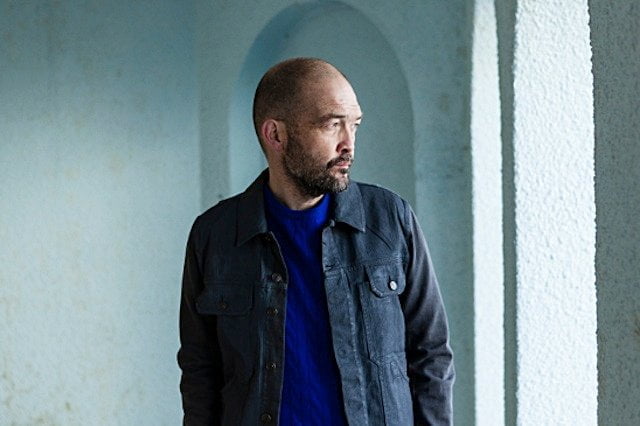
Were all the songs on Hendra written specifically for the album?
“Most of them. Seven of them I wrote last year. But Matthew Arnold’s Field was written in 2006, just after my Dad died… I kind of wrote it out of nowhere and didn’t know what to do with it until now. And then a couple of the lyrics, for The Gun and Forget, began life during the Buzzin’ Fly collaborations project Outspoken back in 2005. Those two songs were written in part then, and finished off for the Hendra project.
“With Forget, the verses came from the Outspoken period, but I added a new bridge when recording it for this album. With The Gun, that was more of a spoken word, short story kind of piece originally, it had less rhyme and a very open-ended metre. So when I adapted it to the chords as it appears on Hendra, I had to put some rhymes in and kind of tweak it and adjust it here and there to give it more of a song structure.”
Finally, what advice might you have for aspiring songwriters reading this?
“Be as observant as you can be, and use all of your five senses. If you’re describing a situation, don’t just tell people what happened… tell them what it smelt like, what it sounded like.
“Sometimes I also find it can help to write the story down in prose first. Decide what you want to say before you start getting trapped in rhyme schemes. And another tip is that, if you’ve got three verses in a song, then use each verse to give a different perspective. For instance, you might write in the present tense in the first verse, the past tense in the second and the future tense in the third.
“It’s funny, because once upon a time if you’d asked me that question I’d have said ‘None’. But a few years ago I got asked to host a songwriting workshop at a literary festival in Sussex. So I did my homework and read a few books on the subject to find some ideas to add to my own, and I did the workshop, where we tried out some of the techniques I’d noted down, and lo and behold, a year later I found I was using them!”
Interview: Russell Deeks
Hendra is out now on Unmade Road, and you can watch Ben performing the title track below. For more information, see the official Ben Watt website.




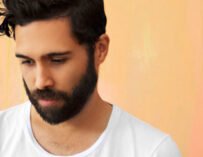

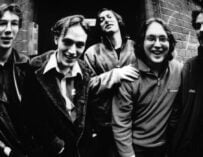

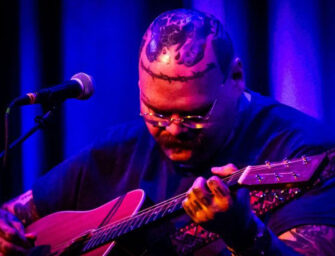
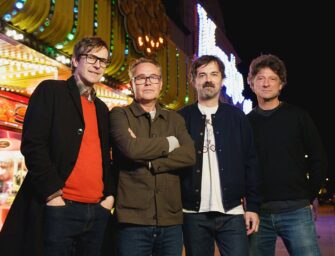

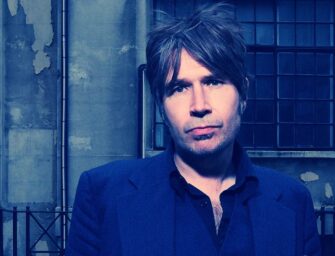























Related Articles